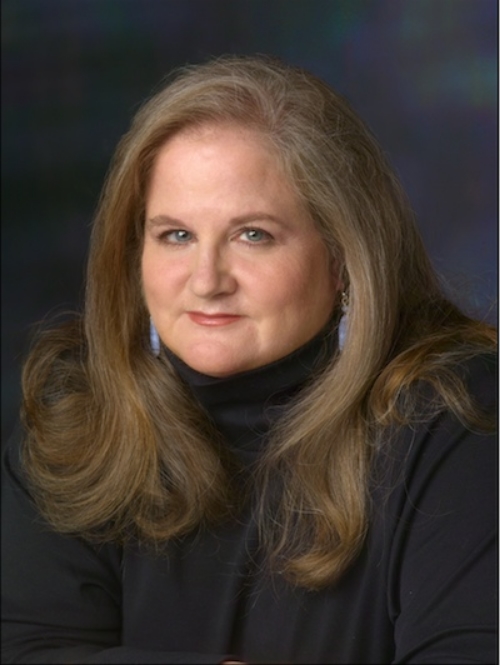You can cry while you're riding public transportation and no one will give a damn.
My cousin Diane sent my mother copies of letters Diane's father, Charles, had kept; letters written during World War II. They were from my paternal grandmother, aunts and uncles, my mother, and my father (Charles' brother). Charles was serving in the Navy at the time. Almost all these people are gone now--all except my mother. But reading their letters brought them back so vividly there were times it was a kind of weight on my heart.
Sunday, Mother's Day
Dear Charles:--I am not going to start by saying that by next Mother's Day I will have all my children with me because I am in hopes of having them long before that, maybe for our 25th wedding anniversary. I am thankful though that I have my daughter here. She sure is sweet & thoughtful & makes it easier for me with you two away.
That was the first thing that made me cry. The "daughter" my grandmother was referring to, was actually her daughter-in-law to be, my mother. I remembered being surprised when my mother told me that she spent the weekends with my paternal grandparents while their sons were away. She wasn't even married to my father at the time. "I helped out in the store," she said. "I thought they might be lonely, with Bernie and Charles away." And I remembered how my grandmother said my mother's name--Elaine--differently than everyone else. Most people accented the second syllable, but my grandmother emphasized the first--"E-laine."
From a letter dated 7/16 Sunday [1945]
I hear you are a truck driver. Jee I remember the time you went thru a window at Broad and Federal Sts. Hope there is no windows on your muddy roads. I bet ur just as good a driver now as u were a student here. In fact I know you are good at anything you do.
That made me laugh out loud and I could practically smell Uncle Moe's cigar. By the way, my Uncle Charles was the person who taught my father to drive.'
From a letter dated Wednesday, Nov 21 [1945]--my paternal grandparents' 25th wedding anniversary--
All of us will have a happier Thanksgiving this year than last. Last year on Thanksgiving we received that telegram from the government about Bernie.
I knew my father had been wounded in France, near Metz. But I never knew my grandparents got the news about him being wounded on Thanksgiving Day.
Letter dated January 19, 1946, Saturday, written by my mother. Although she hadn't married my Dad yet, she still called Charles "brother."
Brother dear!!!!!!!!!!
I got a cable from Bernie this morning, and it said he's sailing this morning! Isn't that wonderful!!!!!!!! I'm so excited I can't work or do anything. I wanted to write and tell you right away. I'll write again on Monday, although we probably won't hear anything now for about 10 or 12 days. Isn't it wonderful!!!!!! (Oops--I've already said that, haven't I, brother dear.) Bye for now, Love--Elaine.
From a letter dated March 9, 1946, Saturday [my parents were married the following day]
I am really at a loss for words when I try to say how much I will miss having you there. Jackie will not actually be my best man but just the best available man.
In Charles' absence, my father had asked his cousin Jack to be his best man. This made me cry too. It was so typical of my father. At his funeral, I compared him to the ocean, a calm surface hiding the rich world beneath it. I believe my father was a very emotional man, but he grew up in a time when men were not supposed to be that way. And so he expressed his emotion in a very understated way.
From a letter written by my Aunt Clara, my grandmother's sister, dated March 11, 1946.
Elaine looked lovely, she made one of the prettiest brides I have seen. Bernie looked alright too, though somewhat nervous. He wiped the perspiration from his face several times while under the canopy at the altar.
There are formal photographs of my parents on their wedding day, but Aunt Clara's letter gave me the gift of this written portrait.
Many of the letters--in fact, all of my grandmother's letters--began by telling my uncle what mail they had received from him, and when they received it. I thought that was odd at first, but then I thought about the circumstances, the war, and what not hearing from a loved one could imply. The days when no mail was received must have been anxious ones. Letters were not just a source of news but of reassurance.
In these days of instant gratification, with the variety of speedy communication options available to us, I think the letter form offers us a way of revealing ourselves that email does not. What we choose of write about, and the style in which we write it, the stationery that we write on, what we write with (typewriter, fountain pen, or ball point)--there's a kind of deliberation, and a personalization, that isn't available through email. And though I utilize email and I love Facebook, from time to time I still feel the need to write an old-fashioned letter. That's just the kind of girl I am.


